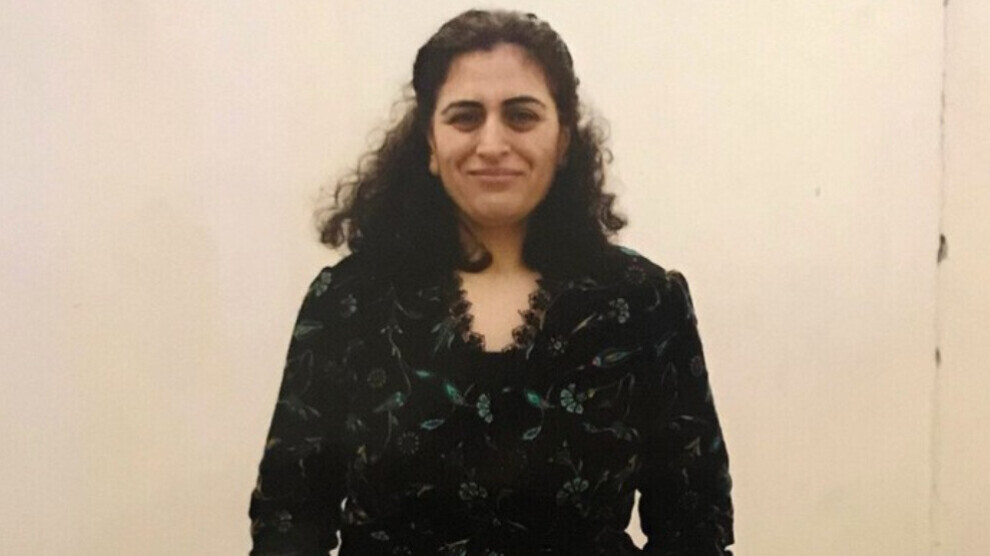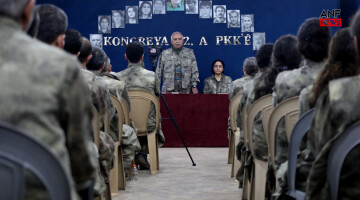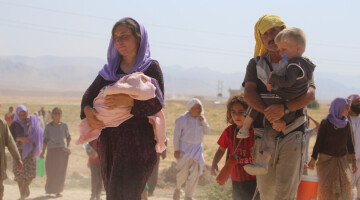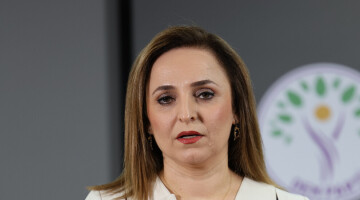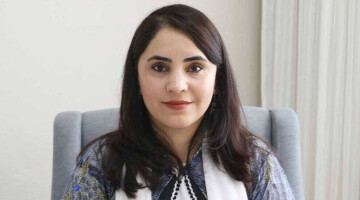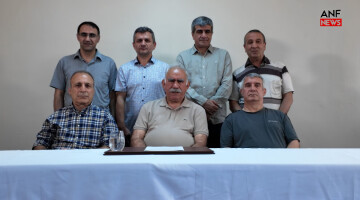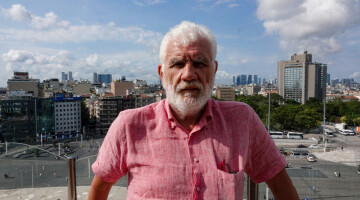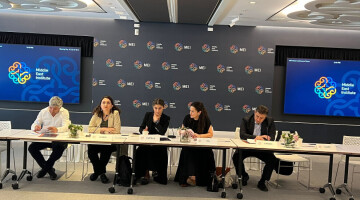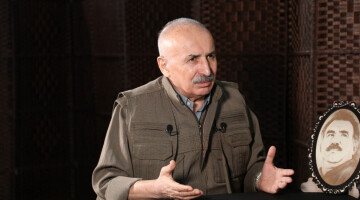Sebahat Tuncel, a former MP for the Peoples' Democratic Party (HDP), answered questions from prison sent through her lawyer by La Stampa journalist Valentina Ruggiu.
Here are excerpts of the interview.
First of all, how are you?
“Thank you for giving us the opportunity to make our voices heard in these difficult conditions. How am I? I don't know how to answer this question. To say that 'I'm fine' would not be true given the conditions in which we live inside and outside prison. I can say that I am in good health. To make you understand better, I will limit myself to telling you some facts from which you can draw your own conclusions. To understand what Turkish democracy is like, just look at it: in this country, the slightest demand for rights justifies detention. This is why thousands of politicians, activists, journalists and exponents of the Kurdish and women's movement are unjustly and illegally held as 'hostages' in prisons. And the government's anti-Kurdish policy continues even in prison. For example, when the release of hundreds of Kurds is postponed or canceled under false pretexts, despite having served the years originally imposed".
How do they treat you in prison as a political prisoner?
“There are disparities. 'Normal' prisoners are granted the right to a 30-minute videophone, political prisoners and detainees instead have only a 10-minute phone call. Again, other detainees in certain circumstances have the right to an additional 30 minutes of telephone time, while political detainees are not granted this right. In general, daily life in Turkish prisons is a constant war and requires a lot of willpower. We are subjected to solitary confinement, a practice that began on the island of Imrali and then spread to all prisons. Especially with Covid 19, political prisoners have been placed in solitary confinement while judicial detainees have been released. In some cases, double handcuffing is also imposed, i.e. two prisoners handcuffed to each other. There are not enough health personnel, the food supply is not good and we have to deal with the cameras pointed 24 hours a day at us, including when we go to the bathroom. Two principles hold true in prisons in Turkey. First, the state is always right. Second, if the prisoners are right, the first principle applies. Objecting to prison administration practices carries the risk of disciplinary sanctions such as deprivation of visits, suspension from certain activities and judicial harassment. I tried to fight against the injustices in prison. I was sentenced to 1 year and 3 months."
How long will you have to stay in prison?
"I don't know how much longer I'll stay here. In Turkey, the independence of the judiciary, as well as the executive and legislative branches, has disappeared and the politicization of the judiciary has removed any possibility to predict how long we have to remain in jail. 90% of lawsuits filed against Kurdish politicians are based on political motives. As it stands, the Turkish judicial system has taken us Kurds out of the "normal" legal system. Turks have the right to do politics, organize and act, but when Kurdish politicians do it, especially if they are women and young people, then they are accused of "belonging to a terrorist organization". Freedom of thought, freedom of expression, basic human rights and constitutional rights are usurped. That's why I and our former HDP co-chairs, MPs and municipal co-mayors have been unjustly held hostage for 7 years."
How will Erdogan's victory affect the future of the Kurdish people?
If Erdogan wins the elections, as a first step, he will write a new constitution to institutionalize the fascist regime. His victory is likely to lead to social disputes and rebellions in the short term. The next few days will be difficult for Turkey. Surely the misogynist, nationalist, religious and militarist alliance established by Erdogan will continue to be anti-Kurdish. Members of the judiciary who are politicized and appointed by the government will continue to act on the basis as they have to date. But I am sure that developments in the world and in the Middle East region will force Erdogan to change.
What future do you dream of for Turkey and the Kurds?
“I believe my people will be free. Self-government, our democratic, ecological, women's libertarian paradigm will come to life, and the peoples of Turkey and the Middle East will build an equal in rights, free, democratic and peaceful life. I'm fighting for this."
Source: La Stampa

